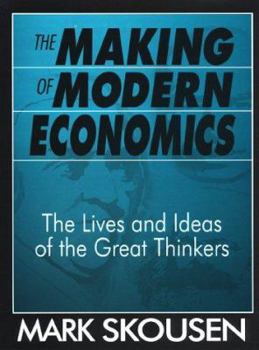The Making of Modern Economics: The Lives and Ideas of the Great Thinkers
Select Format
Select Condition 
Book Overview
The Making of Modern Economics presents a bold and engaging history of economics--the dramatic story of how the great economic thinkers built today's rigorous social science.This comprehensive yet... This description may be from another edition of this product.
Format:Paperback
Language:English
ISBN:0765604809
ISBN13:9780765604804
Release Date:January 2001
Publisher:Routledge
Length:384 Pages
Weight:1.82 lbs.
Dimensions:1.0" x 6.6" x 9.3"












